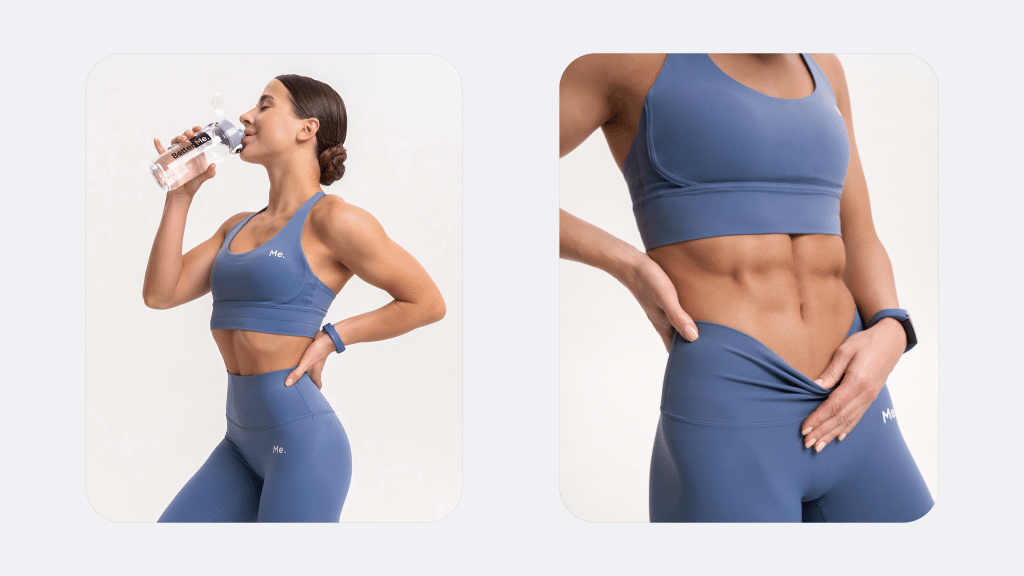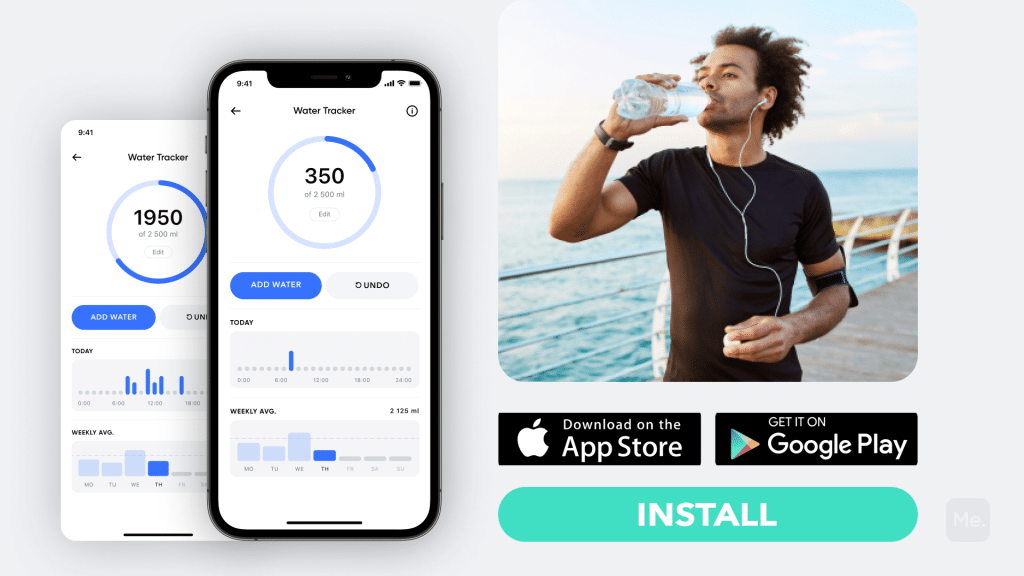Intermittent fasting (IF) can be an effective weight-loss method. Some researchers also claim that it could provide a number of potential health benefits, including reduced inflammation, autophagy, and much more (18). As It’s simpler than most diets, many people incorporate it as part of a healthy diet.
But if you’re thinking of hopping on this diet and you love your beer or wine, you may be wondering, “can I drink alcohol while fasting?” Read on for a science-based answer to this question
Can You Drink Alcohol on the 16/8 Diet?
Intermittent fasting is an umbrella term for various diets, but the most common form of IF is called the 16/8 method. During this type of intermittent fast, you eat for eight hours and then abstain from food for another sixteen.
For example, if your eating window is from noon to 8 pm, then your fasting window would be from 8 pm until noon the next day.
Does Alcohol Break Your Fast?
Consuming alcohol during your fast (between 8 pm and noon the next day) will break your fast. Alcohol contains calories and some types have more calories than others (11). If you drink it during your fast, your body gets to work digesting it and stops using stored fat for energy.
As soon as you put alcohol into your mouth, several pathways are activated. The alcohol is absorbed from your digestive tract into your bloodstream, then makes its way to your liver. The liver then gets rid of this alcohol, sending it to the kidneys for excretion. This process can take up to 11 hours depending on many factors such as age, weight, sex, and more (11).
What Can You Drink While Fasting?
While fasting, you can drink zero-calorie beverages such as water, black coffee, and tea. These beverages don’t contain any calories or macronutrients, so they won’t break your fast.
Water
Water is an essential drink that should be consumed while fasting. It keeps you hydrated and helps flush out toxins from your body. Drinking a sufficient amount of water can also help reduce hunger and make you feel more full during your fast (19).
You can drink flavored or carbonated water while fasting, as long as it doesn’t contain any calories. Artificial sweeteners won’t break your fast, but some people still prefer to avoid them while fasting.
Yanking yourself back in shape has never been so easy with our game-changing fitness app! Start transforming your life with BetterMe!
Unsweetened Black Coffee
Black coffee is another popular drink while fasting. It contains caffeine, which can help boost your energy levels and improve focus during a fast. The caffeine in black coffee has also been proven to increase fat burning, which makes it a great choice for those who are fasting for weight loss (20).
However, it’s important to note that adding any type of milk or sugar to your coffee will break your fast. You must stick to drinking plain black coffee if you choose this beverage during your fast.
Unsweetened Tea
Tea is another zero-calorie drink that can be consumed while fasting. Similar to black coffee, it contains caffeine that can help improve energy and focus. Tea also has other health benefits such as antioxidants that can support your overall well-being (21).
When choosing tea to drink during a fast, you should opt for plain black or green tea rather than flavored teas. Flavored teas may contain added sugars that can break your fast. Herbal teas without added sugar can also be consumed during a fast if you don’t want the caffeine.
We’ve discussed foods you can eat while fasting in our What To Eat During Intermittent Fasting blog post.
What Are the Health Effects of Excess Alcohol Consumption?
If you’re doing 16/8 intermittent fasting for health benefits, you may want to limit your alcohol intake. This is because excessive alcohol consumption has several effects that may counteract the potential benefits of the diet.
Some of the health effects of excessive alcohol include impaired fat-burning and weight loss, inflammation, and impaired autophagy. We discuss each of these effects below:
Impaired Fat-Burning and Weight Loss
Here are some reasons why alcohol can impede your body’s ability to burn fat and shed weight:
High in Calories
Alcohol is also known as ethanol and it’s calorie-dense (7 calories per gram). A shot of liquor can run anywhere from 80 to 100 calories. A beer is approximately 150 calories, while a glass of wine runs right around 120. And those cocktail mixers you think are harmless? Cocktail recipes often call for mixes that top out at 300 or more calories per serving due to the added sugar content (6). Consistent high-calorie intake will sabotage your weight loss efforts.
Impaired Liver Function
Over time, excessive alcohol consumption can impair your liver function. If your liver isn’t working efficiently, it can seriously compromise the body’s natural fat-burning and other metabolic processes (7).
Poor Food Choices
You’re more likely to choose high-calorie or unhealthy foods when you drink and then have trouble stopping after just one serving (2). The combination of those poor food choices and increased portions often leads to weight gain if you’re not already overweight.
Impaired Hormone Regulation
Alcohol may increase the levels of the hormone cortisol and promote abdominal fat gain, particularly when consumed in excess. The release of stress-related hormones such as cortisol is associated with an increased risk for belly fat accumulation (and can lead to a “beer belly”) (16).
Poor Sleep
Drinking alcohol closer to bedtime may also disrupt sleep patterns by making it more difficult for you to achieve a deep level of REM sleep (when your body repairs and restores itself) (4).
Sleep deprivation, whether from lack of sleep or impaired sleep, can lead to an imbalance in the hormones that are related to hunger, satiety, and energy storage (10).
Read More: Does Whiskey Make You Fat: Digging Deeper Into The Relationship Between Alcohol And Weight Gain
Poor Digestion
Drinking too much alcohol can interfere with the balance of good gut bacteria that help with digestion. When excess alcohol is consumed, levels of these good bacteria may decrease while levels of other bacteria increase. Poor digestion means poor absorption of important nutrients that help reduce inflammation, support immunity, and enhance metabolism (9).
Impaired Autophagy
Autophagy is one of the most sought-after benefits of intermittent fasting. This is the process by which cells discard their waste products and other dysfunctional components. Autophagy is believed to be highly protective against degenerative diseases, aging, and even cancer (13).
Excessive alcohol may inhibit autophagic activity during intermittent fasting. Autophagy is inhibited by oxidative stress and inflammatory mediators that occur after chronic intensive alcohol consumption (1). This oxidative stress and inflammation also creates more damage to cells and cell components.
Potential Inflammation
Reduced inflammation is another benefit of intermittent fasting. However, alcohol can cause inflammation. Chronic inflammation may contribute to the development of various diseases (15).
You Don’t Need to Give up Alcohol While Intermittent Fasting
Going on the 16/8 intermittent fasting diet doesn’t mean you need to give up alcohol entirely. You can consume a moderate amount of alcohol during your eating window. Please consult your doctor.
Read More: Does Alcohol Slow Your Metabolism? The Effect Of Alcohol On Your Body
Can You Drink Alcohol on the 16/8 Diet? Choosing the Right Alcohol
If you’re going to drink while doing the 16/8 intermittent fasting, you should choose the right alcohol. Avoid high-calorie drinks that are full of added sugar. Go for dry wine or distilled spirits that are low in calories. Below is the calorie content of different alcohol types according to the National Institutes of Health (6):
- Beer – 153 calories per 12 fl oz. serving
- Gin, rum, vodka, whiskey, tequila – 97 calories per 1.5 fl oz. serving
- Brandy, cognac – 98 calories per 1.5 fl oz. serving
- Liqueurs – 165 calories per 1.5 fl oz. serving
- Red wine – 125 calories per 5 fl oz. serving
- White wine – 121 calories per 5 fl oz. serving
- Champagne – 84 calories per 4 fl oz. serving
- Margarita – 168 calories per 4 fl oz. serving
- Cosmopolitan – 146 calories per 2.75 fl. oz serving
- Whiskey sour – 160 calories per 3.5 fl oz. serving
FAQs
What can I eat or drink during 16/8 intermittent fasting?
During the 16 hours of fasting, it’s important to stay hydrated and you should consume nutrient-dense foods during the 8-hour eating window. Here are some examples of what you can eat or drink during your intermittent fasting:
- Plain water: Water is a crucial component of staying hydrated and can also help curb hunger cravings (19). You should drink plenty of water, even during your fasting period.
- Black coffee or tea: These beverages contain zero or negligible calories and can also provide an energy boost during the fasting period (20)
- Bone broth: This protein-rich drink can help keep you satiated and provide essential nutrients (22). A small amount is unlikely to break a fast.
- Low-calorie electrolyte drinks: These drinks can replenish lost electrolytes and prevent dehydration, but make sure you choose options with no added sugars. If they have zero calories, you can consume them during your fasting period.
- Fruits and vegetables: Opt for nutrient-dense options such as berries, leafy greens, and cruciferous vegetables. These foods can provide essential vitamins and minerals, in addition to fiber during your eating window (23).
- Lean protein: During your eating window, choose lean protein sources such as chicken, fish, tofu, or legumes. These foods can help with satiety and muscle maintenance during fasting regimens (24).
- Healthy fats: Incorporating healthy fats such as avocado, nuts, and olive oil into your eating window meals can provide sustained energy and promote feelings of fullness (25).
Success with intermittent fasting is what you eat or drink during the designated eating window and also making sure your overall diet is balanced and nutrient-dense.
What alcohol is good for intermittent fasting?
Intermittent fasting may be complemented by certain types of alcohol that are lower in calories and carbs. If you choose to consume alcohol in moderation during your eating window, consider options such as:
- Clear Spirits: Vodka, gin, tequila, and rum are generally lower in calories and carbs than other alcoholic beverages.
- Dry Wines: Opt for dry wines such as Pinot Grigio, Sauvignon Blanc, or Merlot, which tend to have fewer sugars than sweeter varieties.
- Light Beers: Choose light beers or those labeled as low-carb to minimize the impact on your fasting goals.
Note that consuming alcohol during your fasting window will break your fast and may affect your weight loss and overall health goals. It can also lead to increased cravings and overeating during the eating window. Moderation is key, and it’s recommended that you consult a healthcare professional before you incorporate alcohol into your intermittent fasting regimen.
How much weight do you lose on a 16/8 fast?
The rate at which you lose weight with any diet or fasting regimen can vary greatly depending on several individual factors such as starting weight, age, sex, activity level, and overall diet quality.
For example, someone who starts a 16/8 fasting regimen with a higher initial body weight may experience more significant weight loss initially than someone who has less weight to lose.
In addition, the rate of weight loss can be influenced by metabolic health. Individuals with metabolic conditions such as insulin resistance or type 2 diabetes may see different results to those without these conditions.
It’s also important to recognize that initial weight loss often includes water weight, as the body uses up glycogen stores that also release retained water (27).
It’s generally recommended to aim for weight loss of 1-2 pounds per week if you want to lose weight safely and sustainably. Consistency and adherence to the intermittent fasting schedule play vital roles in achieving and maintaining weight loss. Creating a balanced meal plan that includes nutrient-dense foods during the eating window can further enhance the results.
Foods that are rich in protein, healthy fats, and fiber can promote satiety and help preserve lean muscle mass while losing fat. It’s also essential to incorporate physical activity into your routine.
Regular exercise can enhance weight loss, improve metabolic health, and provide additional health benefits such as improved cardiovascular fitness and mental well-being. Strength training, in particular, can help maintain muscle mass during weight loss, which contributes to a healthier and more toned physique (28).
Ultimately, while intermittent fasting can be an effective strategy for weight loss, the amount of weight lost will be dependent on a combination of dietary habits, physical activity, and individual metabolic factors.
Is it okay to do 16/8 fasting every day?
It’s okay to practice 16/8 fasting every day, as long as you don’t have any medical conditions, it’s sustainable, and it fits into your lifestyle. The most important aspect of intermittent fasting is finding a schedule that works for you and allows you to maintain consistency.
However, it’s also essential to listen to your body and adjust the frequency and duration of your fasting periods as necessary. If you start to feel fatigued or experience any negative physical symptoms, it may be necessary to take a break from daily fasting or reduce the length of your fast.
Consulting a healthcare professional before you start any new diet or exercise regimen can also help ensure that daily intermittent fasting is appropriate, particularly if you have any medical conditions or are taking any medications.
The Bottom Line
Going on the 16/8 intermittent fasting diet doesn’t mean you need to give up alcohol entirely. You can consume a moderate amount of alcohol during your eating window. Moderate drinking is defined as one drink per day for women and two drinks per day for men. If you’re going to drink while doing the 16/8 intermittent fasting, you should choose low-calorie beverages such as dry wine and distilled spirits with no added sugar.
DISCLAIMER:
This article is intended for general informational purposes only and does not serve to address individual circumstances. It is not a substitute for professional advice or help and should not be relied on for making any kind of decision-making. Any action taken as a direct or indirect result of the information in this article is entirely at your own risk and is your sole responsibility.
BetterMe, its content staff, and its medical advisors accept no responsibility for inaccuracies, errors, misstatements, inconsistencies, or omissions and specifically disclaim any liability, loss or risk, personal, professional or otherwise, which may be incurred as a consequence, directly or indirectly, of the use and/or application of any content.
You should always seek the advice of your physician or other qualified health provider with any questions you may have regarding a medical condition or your specific situation. Never disregard professional medical advice or delay seeking it because of BetterMe content. If you suspect or think you may have a medical emergency, call your doctor.
SOURCES:
- Adipose tissue autophagy and homeostasis in alcohol-induced liver injury (2017, nih.gov)
- Agrp neuron activity is required for alcohol-induced overeating (2017, nature.com)
- Alcohol: Balancing Risks and Benefits (n.d., harvard.edu)
- Alcohol and a Good Night’s Sleep Don’t Mix (2013, webmd.com)
- Alcohol and oestrogen metabolites in postmenopausal women in the Women’s Health Initiative Observational Study (2017, nih.gov)
- Alcohol calorie calculator (n.d., nih.gov)
- Alcohol-related liver disease (2018, nhs.uk)
- Alcohol’s Effects on Male Reproduction (1998, nih.gov)
- Alcohol’s Role in Gastrointestinal Tract Disorders (1997, nih.gov)
- Here’s What Happens When You Don’t Get Enough Sleep (And How Much You Really Need a Night) (2020, clevelandclinic.org)
- How Long Does Alcohol Stay in Your System? (2021, americanaddictioncenters.org)
- Risk of dementia and alcohol and wine consumption: a review of recent results (2004, pubmed.gov)
- System-wide Benefits of Intermeal Fasting by Autophagy (2017, pubmed.gov)
- The Effect of Alcohol Consumption on Insulin Sensitivity and Glycemic Status: A Systematic Review and Meta-analysis of Intervention ( 2015, diabetesjournals.org)
- The inflammation theory of disease (2012, nih.gov)
- The Relationship between Alcohol Consumption and Cortisol Secretion in an Ageing Cohort (2007, nih.gov)
- What happens when you drink alcohol (n.d., nidirect.gov.uk)
- Beneficial effects of intermittent fasting: a narrative review (2023,nih.gov)
- Water Consumption Increases Weight Loss During a Hypocaloric Diet Intervention in Middle-aged and Older adults (2009,nih.gov)
- Does Black Coffee Reduce Weight: Research-Based Insights into Coffee’s Role in Weight Loss (2024,pharmeasy.in)
- The Hidden Health Benefits of Tea (2022,pennmedicine.org)
- Bone Broth Benefits: A Comprehensive Guide to Its Research-Backed Advantages (2024,pharmeasy.in)
- Healthy Habits: Fruits and Vegetables to Manage Weight (2023,cdc.gov)
- Clinical Evidence and Mechanisms of High-Protein Diet-Induced Weight Loss (2020,nih.gov)
- The Skinny on Fat (2019,nih.gov)
- INTERMITTENT FASTING AND HUMAN METABOLIC HEALTH (2016,nih.gov)
- Glycogen storage: illusions of easy weight loss, excessive weight regain, and distortions in estimates of body composition (1992,nih.gov)
- Physical Activity and Your Weight and Health (2023,cdc.gov)
- Changes in Alcohol Consumption and Risk of Dementia in a Nationwide Cohort in South Korea (2023, jamanetwork.com)












